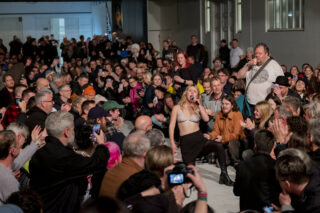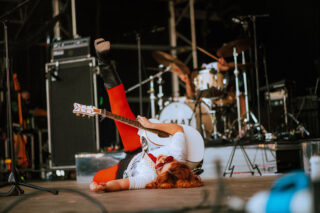Imagine having a government that pays more than just lip service to supporting the arts. Where funding is readily available for those that need it, so that music needn’t merely be the preserve of the upper middle classes. Sounds wild, right? Except in Iceland it exists.
Reporting to the Ministry of Culture and Business Affairs, the Iceland Music office administers the Iceland Music Fund, which supports local artists with music creation and promotion, both domestically and internationally. They also oversee Record Iceland, another government-backed initiative which offers a 25% rebate to international artists using Icelandic recording studios. Add to this Iceland Airwaves’ continued commitment to booking as many local artists as international acts, and you can begin to see why the creative industries now account for 3.5% of Iceland’s annual GDP.
That’s not to say Iceland is some liberal utopia – indeed, a hot topic amongst locals is safeguarding Reykjavik’s music scene, after the recent closure of several independent venues to make way for hotels. But while there’s clearly still work to do, there’s a sense that the Government are prepared to do it, not least because they understand that by investing in their cultural legacy they leave every citizen richer.
This positive, can-do spirit powers Iceland Airwaves – Reykjavik’s flagship festival and conference. Having essentially started out as a GusGus gig in an aircraft hangar back in 1999, organisers have spent the past quarter of a century tinkering with the format before arriving at their current set-up of three nights, six venues, 7,000-odd punters and an eclectic conference programme – plus a slew of unofficial fringe events at dive bars, record stores and churches. This year the conference ranges from panels on artistic integrity to an Of Monsters and Men listening party hosted by Tim Burgess. For the uninitiated, it’s a bit like The Great Escape, but audiences are entirely fueled by Bæjarins Beztu Pylsur’s hotdogs, and the Faroese Music Export are welcome.
Speaking of which, Faroese rapper Silvurdrongur provides one of the weekend’s early talking points, delivering half an hour of intense jazz/metal weirdness over at the stunning, lakeside ballroom Iðnó. Sporting a chiffon headscarf, sweatbands and a fringed shawl, they ricochet between moments of fury and serenity, their freeform song structures loosely guided by double bass, cello, drums and guitar. Much-hyped Florida duo Magdalena Bay are of equal sartorial interest, with singer Mica Tenenbaum twirling in an iridescent green cloak in front of hyperreal videos that are part Leigh Bowery, part Windows 95 screensaver. Though well-received, their music is a lot less remarkable, offering pretty but ultimately frictionless pop songs that segue indistinguishably into one another.








